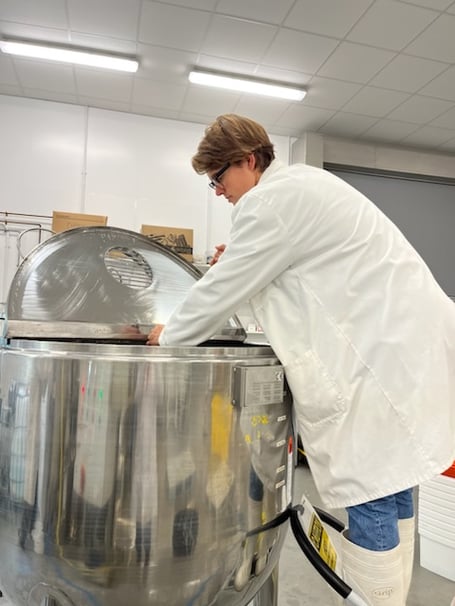Aberystwyth-based LanoTech has been crowned the Best Rural StartUp at the 2025 UK National StartUp Awards, held at Ideas Fest.
LanoTech is pioneering the use of lanolin, the natural grease in sheep wool, as a sustainable alternative to soy and vegetable oil in animal feed. With the ambition of halving the feed industry’s reliance on environmentally damaging oils, the company is creating value from a low-cost, domestically available resource – British wool.
Early trials have shown that lanolin has higher energy content and stability than conventional feed oils, with comparable digestibility. The business is driven by a mission to reduce agriculture’s carbon footprint, build a circular economy and improve farmers’ incomes by enhancing the value of wool.

The award win is the latest milestone in a journey supported by the Business Wales Accelerated Growth Programme (AGP). LanoTech graduated from the AGP Start Up Accelerator programme in July 2024, where founder Clodagh Weingart received intensive coaching and support to refine strategy and focus on scaling the business.
Clodagh Weingart, founder of LanoTech, said: “Winning the Best Rural StartUp award is an incredible honour and recognition of how far we’ve come. When I launched LanoTech, I wanted to show how innovation can transform something undervalued into a resource that helps tackle climate change and supports British farmers. To be recognised on a UK stage, against outstanding finalists from across the country, is a huge boost. The support I’ve had through the AGP has been invaluable in helping me develop the business model, build resilience and focus on growth. This award gives us real momentum for the next stage of our journey.”
Geraint Hughes, Relationship Manager with the Business Wales Accelerated Growth Programme, said: “We’re thrilled to see Clodagh and LanoTech achieve national recognition. LanoTech is a brilliant example of how Welsh innovation can tackle global sustainability challenges while creating new opportunities for farmers.”





Comments
This article has no comments yet. Be the first to leave a comment.